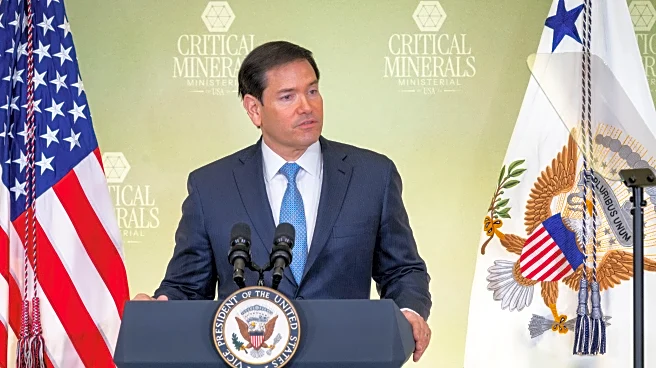What's Happening?
Kensa, a South West company specializing in ground-source heat pumps, is undergoing a significant workforce reduction, affecting approximately 20% of its employees. This decision follows a previous reduction of a similar scale last year. The company, which has been a recipient of substantial government and EU funding, cites policy delays and market uncertainties as primary reasons for the cuts. Kensa's Heat the Streets campaign, which aimed to reduce carbon emissions and gas bills, had previously garnered attention and financial support. However, the company now faces challenges due to the delayed implementation of the Future Homes Standard and a hiatus in heat pump delivery under key funding schemes. These factors have led to a reassessment of growth expectations and financial strategies.
Why It's Important?
The workforce reduction at Kensa highlights the broader challenges facing the UK's renewable energy sector, particularly in the heat pump market. Policy instability and market uncertainty can have significant impacts on companies that rely on government support and regulatory frameworks to drive growth. The reduction in workforce not only affects the employees but also has potential repercussions for customers and local businesses that depend on Kensa's products and services. The situation underscores the importance of stable and predictable policy environments for the growth of sustainable energy solutions, which are crucial for meeting climate targets and reducing reliance on fossil fuels.
What's Next?
Kensa remains optimistic about the long-term prospects of the UK heat pump market and continues to have the support of its investors. The company is taking proactive measures to maintain a healthy financial position, despite the current challenges. The anticipated publication of the Future Homes Standard, expected in the autumn, could provide clearer guidelines and potentially stabilize the market. However, until these policies are implemented, companies like Kensa may continue to face uncertainties. Stakeholders, including policymakers and industry leaders, will need to address these challenges to ensure the continued growth and success of the renewable energy sector.
Beyond the Headlines
The situation at Kensa also raises questions about the ethical and social responsibilities of companies receiving public funding. The decision to cut jobs, particularly at lower levels, while maintaining high executive salaries, may attract scrutiny and criticism. Additionally, the impact on local communities and the potential for increased energy insecurity during the winter months highlight the need for comprehensive support systems for both employees and consumers affected by such corporate decisions.











